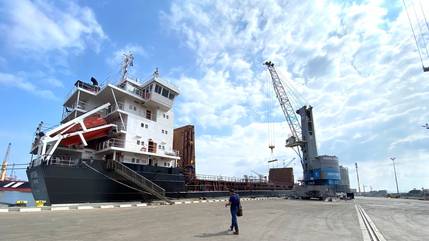Gulf Oil Spill – Conservationists Sue for Dispersant Harm
Lawsuits filed by conservation groups against EPA, USCG, for authorizing toxic oil spill dispersants two years after the Deepwater Horizon spill
Conservation groups have sued the Environmental Protection Agency and the U.S. Coast Guard for authorizing toxic oil dispersants without ensuring that these chemicals would not harm endangered species or their habitats. The groups want the EPA to immediately study the effects of dispersants on endangered and threatened species in all U.S. waters, including threatened and endangered whales, sea turtles, salmon and seabirds in the Pacific and polar bears and walruses in the Arctic.
“If chemical dispersants are going to be used after an oil spill, we have to know whether they’ll hurt or kill whales, sea turtles and other wildlife. So far, the EPA has no idea,” said Deirdre McDonnell of the Center for Biological Diversity, which brought suit with Surfrider and Pacific Environment. “Unprecedented amounts of dispersants were dumped into the sea during the Deepwater Horizon disaster, and they’re likely still affecting the Gulf of Mexico, where dead dolphins continue to wash ashore.”
Dispersants are chemicals used to break oil spills into tiny droplets. In theory, this allows the oil to be eaten by microorganisms and become diluted faster than it would if left untreated. However, dispersants and dispersed oil can also allow toxins to accumulate in the marine food web.
Once put on an official EPA list, chemical dispersants can immediately be used in oil-spill responses in any U.S. waters, including the Atlantic, Pacific or Arctic oceans. But the EPA has not taken steps to ensure that the use of these chemicals will not jeopardize endangered wildlife. The EPA should determine the safety of a dispersant before it goes on the list, not afterward as it did in the Deepwater Horizon oil spill.
More than 2 million gallons were used in the Deepwater Horizon response. Yet the effects of using such large quantities of dispersants and injecting them into very deep water, as BP did in the Gulf of Mexico, have never been studied; scientists believe it may be linked to the spread of underwater plumes of oil.












